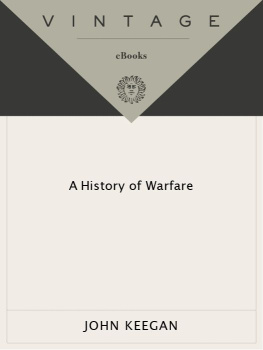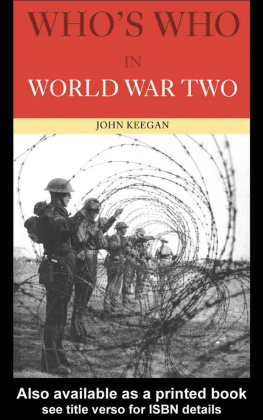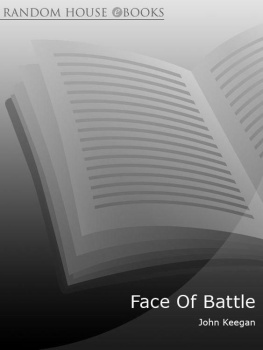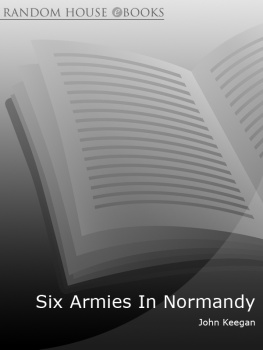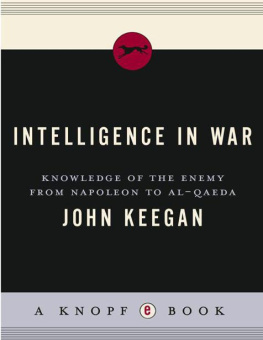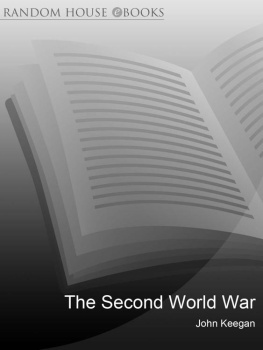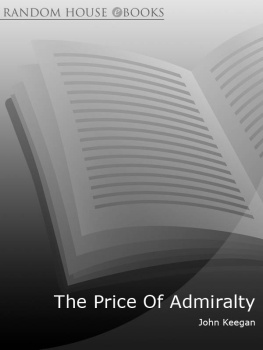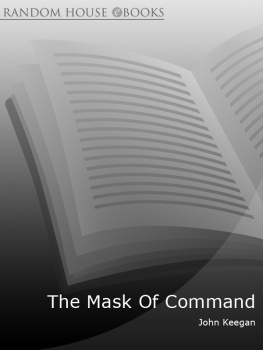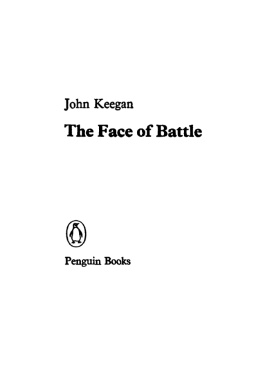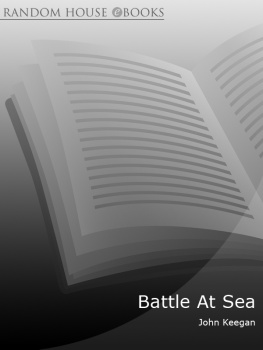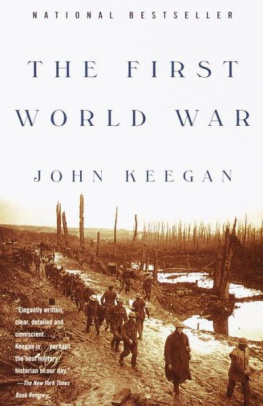John Keegan was for many years senior lecturer in military history at the Royal Military Academy, Sandhurst, and is now defense editor of the Daily Telegraph in London. He is the author or co-author of nine previous books.
ALSO BY JOHN KEEGAN
The Face of Battle
The Nature of War (with Joseph Darracott)
World Armies
Whos Who in Military History (with Andrew Wheatcroft)
Six Armies in Normandy
Soldiers (with Richard Holmes)
The Mask of Command
The Price of Admiralty
The Second World War
FIRST VINTAGE BOOKS EDITION, NOVEMBER 1994
Copyright1993 by John Keegan
All rights reserved under International and Pan-American Copyright Conventions. Published in the United States by Vintage Books, a division of Random House, Inc., New York. Originally published in hardcover in Great Britain by Hutchinson, London, in 1993. First published in the United States by Alfred A. Knopf, Inc., New York, in 1993.
The Library of Congress has cataloged the Knopf edition as follows:
Keegan, John, [date]
A history of warfare / John Keegan.
p. cm.
Includes the bibliographical references.
1. Military art and scienceHistory. I. Title.
U27.K38 1993
355.009dc20 93-14884
eISBN: 978-0-307-82857-6
v3.1
In memory of Winter Bridgman
Lieutenant in the Rgiment de Clare
killed at the battle of Lauffeld
July 2, 1747
Contents
Illustrations
Acknowledgments
Great changes have occurred in the world since I began this book in 1989, and those changes should be acknowledged first. The Cold War has ended. A brief but dramatic air and ground war has been fought in the Gulf. A protracted and cruel civil war has broken out and still rages in former Yugoslavia. Several of the themes developed in this book have revealed themselves at least to me in the Gulf and Yugoslav wars.
In the Gulf a Clausewitzian defeat was inflicted by the forces of the coalition on those of Saddam Hussein. His refusal, however, to concede the reality of the catastrophe that had overtaken him, by recourse to a familiar Islamic rhetoric that denied he had been defeated in spirit, whatever material loss he had suffered, robbed the coalitions Clausewitzian victory of much of its political point. Saddams continued survival in power, in which the victors appear to acquiesce, is a striking exemplification of the inutility of the Western way of warfare when confronted by an opponent who refuses to share its cultural assumptions. The Gulf war may be seen in one light as a clash of two quite different military cultures, each with deep historical roots, neither of which can be understood in terms of abstractions about the nature of war itself, since there is no such thing.
The horrors of the war in Yugoslavia, as incomprehensible as they are revolting to the civilised mind, defy explanation in conventional military terms. The pattern of local hatreds they reveal are unfamiliar to anyone but the professional anthropologists who take the warfare of tribal and marginal peoples as their subject of study. Many anthropologists deny that there is such a phenomenon as primitive warfare. Most intelligent newspaper readers on whom reports of ethnic cleansing, the systematic mistreatment of women, the satisfaction of revenge, the organisation of massacre and the voiding of territory then left unoccupied have made such an indelible impression will be struck by the parallels to be drawn with the behaviour of pre-state peoples described in this book.
I am particularly grateful to Professor Neil Whitehead for the guidance he gave me in finding my way through the literature of the anthropology of warfare. The misunderstandings and misinterpretations that resulted are my own. The professional soldiers and military historians to whom I owe a debt of gratitude for my efforts to piece together a comprehensive picture of the forms warfare has taken across time and place are too numerous to mention. Not all may wish to be associated with such a personal view as the one I have come to hold. I should, however, like to remember my Balliol tutor, A.B. Rodger, who first taught me military history, Brigadier Peter Young, DSO, MC , head of the Department of Military History at the Royal Military Academy, Sandhurst, in which I first tried to teach the subject, and Dr Christopher Duffy, my Sandhurst colleague, whose deep knowledge of Habsburg and Ottoman military history first alerted me to the idea that warfare is a cultural activity.

